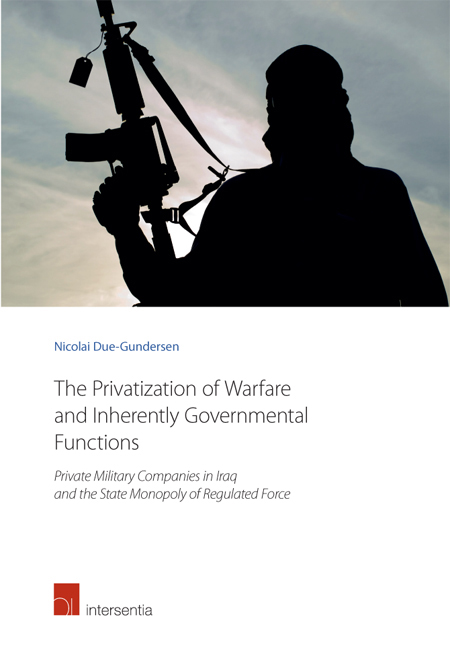 The Privatization of Warfare and Inherently Governmental Functions
The Privatization of Warfare and Inherently Governmental Functions Book contents
- Frontmatter
- Acknowledgments
- Contents
- Chapter 1 Introduction
- Chapter 2 The Recent History of PMCs
- Chapter 3 Literature Review
- Chapter 4 Methodology
- Chapter 5 Theoretical Approach and Terminology
- Chapter 6 Research Design
- Chapter 7 Main Analysis
- Chapter 8 The International Legitimacy of the ICoC
- Chapter 9 Final Conclusion
- Chapter 10 Addendum: The Business of Human Rights and Militarized Resource Companies (MRCs)
- References
- Appendices
Chapter 7 - Main Analysis
Published online by Cambridge University Press: 21 September 2018
- Frontmatter
- Acknowledgments
- Contents
- Chapter 1 Introduction
- Chapter 2 The Recent History of PMCs
- Chapter 3 Literature Review
- Chapter 4 Methodology
- Chapter 5 Theoretical Approach and Terminology
- Chapter 6 Research Design
- Chapter 7 Main Analysis
- Chapter 8 The International Legitimacy of the ICoC
- Chapter 9 Final Conclusion
- Chapter 10 Addendum: The Business of Human Rights and Militarized Resource Companies (MRCs)
- References
- Appendices
Summary
THE STATE INSTRUMENT: DISTINGUISHING BETWEEN FORCE AND VIOLENCE
When considering the research question of this thesis, it may be appropriate to briefly examine whether such a state monopoly should distinguish between the control and use of force and the control and use of violence. While certain critics claim that the differences in definition are moot and philosophical at best, there are others who argue that the central difference is significant because of the method of exerting force or violence, with the term ‘force’ implying the use of violence that is not only (centrally) controlled but institutionalized and thus bestowed with a degree of legitimacy that pure violence lacks. Indeed, the word ‘force’ is one that not only permits violence within legitimate boundaries, but is also a word more strongly linked to state sovereignty than ‘violence’. Hence, the clearest distinction between violence and force is one of legitimate limits. If the state, or any of its authorized agents, were to violate such boundaries through the use of excessive force, then the state's actions within this context lose legitimacy and force is transformed into violence.
Given the importance of legitimacy to the research question and its importance to the public perception of state legitimacy and the legitimacy of a state's agents, including hired PMCs, the aforementioned distinction between force and violence will be taken into account. Hence, discourse analysis of the primary case study will consider whether public discourse and PMC ‘self-discourse’ employ the use of the word ‘force’ over that of ‘violence’, and if the context of each discourse reveals a correlation between legitimacy and use of either ‘force’ or ‘violence’.
FORCE: A STATE MONOPOLY? HOBBES’ AND WEBER's DEFINITIONS OF STATE FORCE
As Realism is a central, traditional theory of International Relations and statecraft, it is worth considering how seminal Realist thought has classified state privileges with regards to the use of force. Both Hobbes and Weber define the relation between force and the state in ways that are analogous yet different. In Hobbes’ Leviathan, the state exists to provide peace to and common defense of its subjects. To that end, the state (called sovereignty by Hobbes) possesses sole right to wage war with others.
- Type
- Chapter
- Information
- The Privatization of Warfare and Inherently Governmental FunctionsPrivate Military Companies in Iraq and the State Monopoly of Regulated Force, pp. 93 - 156Publisher: IntersentiaPrint publication year: 2016


